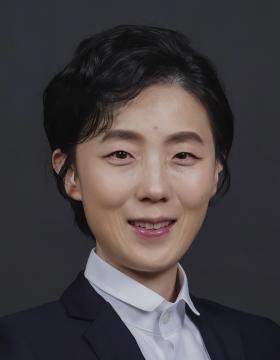
In Young Hwang
Profile
SIT Appointments
- Associate Professor– Present
Education
- PhD (Molecular Medicine)University of Auckland , New Zealand
- Bachelor of Science (Biomedical Science) with First Class HonoursUniversity of Auckland , New Zealand
Research
Research Interests
- Metabolic engineering of microbes for biochemical production
- Development of biosensors and genetic tool-box in microbial systems
- Reprogramming probiotics and commensal microbes for therapy
- Mammalian cell engineering for bioproduction
Current Projects
- Fighting Amebiasis with bacteria: a combined approach with natural probiotics and engineered bacteria– Present
NRF, PI
Past Projects
- Development of microalgae for carbon capture-driven industrial applications–
Sinergy Seed grant, Co-PI
- Engineering commensal microbes to modulate neurohormonal balance–
US Air Force (AOARD), Co-PI
- Biosynthesis of commodity chemicals from oil palm empty fruit bunch lignin–
- A Genetic Expression System that Enables Controllable Decoupling of Cell Growth and Cell Cycle for Improved Mammalian Protein Production–
Thermo Fisher Scientific, Collaborator
Publication
Journal Papers
Koh E‡, Hwang IY‡, Lee J.W.J, Lee Y.S, March J.C, Chang MW. (2022) Engineering probiotics to inhibit Clostridioides difficile infection by dynamic modulation of intestinal metabolism. Nat Commun 13, 3834. ‡authors contributed equally.
Wun KS, Hwang IY, Chang MW (2022) Biocomposite blocks as programmable building materials. Nat. Mater 21, 382-383.
Hwang IY, Kim HR, Chang MW. (2021) Engineered probiotics to alter endocannabinoid system. Biotechnol. Notes. 2, 33-38
Lo T-M‡, Hwang IY‡, Cho H-S‡, Fedora RE, Chng SH, Choi WJ, Chang MW. (2021) Biosynthesis of commodity chemicals from oil palm empty fruit bunch lignin. Front. Microbiol 12, 684. ‡authors contributed equally
Sieow BF, Wun KS, Yong WP, Hwang IY*, Chang MW*. (2021) Tweak to treat: reprograming bacteria for cancer treatment. Trends Cancer 7 (5) 447-464. *Co-corresponding author
Tham E.H*, Koh E, Common J.E.A, Hwang IY. (2020) Biotherapeutic Approaches in Atopic Dermatitis. Biotechnol. J., 15(10), e1900322
Sun T, Kwok WC, Chua KJ, Lo T-M, Potter J, Yew WS, Chesnut JD, Hwang IY*, Chang MW*. (2020) Development of a proline-based selection system for reliable genetic engineering in Chinese hamster ovary cells. ACS Synth Biol, 9, 1864–1872. *Co-corresponding author
Aggarwal, N., Breedon, A.M.E., Davis, C.M., Hwang, I.Y., Chang, M.W. (2020) Engineering probiotics for therapeutic applications: recent examples and translational outlook. Curr Opin Biotechnol 65, 171-179.
Hwang I.Y., Chang M.W (2019) Engineering commensal bacteria to rewire host-microbiome interactions, Curr Opin Biotechnol. 62, 116-122.
Aggarwal N., Hwang I.Y., Chang M.W. (2019). Phage-boosted chemotherapy Nat Biomed Eng 3,680-681.
Lee, H. L., Shen, H., Hwang, I. Y., Ling, H., Yew, W. S., Lee, Y. S., & Chang, M. W. (2018). Targeted Approaches for In Situ Gut Microbiome Manipulation. Genes, 9(7), 351
Lubkowicz, D., Ho, C. L., Hwang, I. Y., Yew, W. S., Lee, Y. S., and Chang, M. W. (2018) Reprogramming Probiotic Lactobacillus reuteri as a Biosensor for Staphylococcus aureus Derived AIP-I Detection, ACS Synth Biol 7, 1229-1237.
Hwang, I. Y., Lee, H. L., Huang, J. G., Lim, Y. Y., Yew, W. S., Lee, Y. S., and Chang, M. W. (2018) Engineering microbes for targeted strikes against human pathogens, Cell. Mol. Life Sci, 1-15.
Hwang, I. Y., Koh, E., Wong, A., March, J. C., Bentley, W. E., Lee, Y. S., and Chang, M. W. (2017) Engineered probiotic Escherichia coli can eliminate and prevent Pseudomonas aeruginosa gut infection in animal models, Nat Commun 8, 15028.
Hwang, I. Y., Koh, E., Kim, H. R., Yew, W. S., and Chang, M. W. (2016) Reprogrammable microbial cell-based therapeutics against antibiotic-resistant bacteria, Drug Resist. Updat. 27, 59-71.
Ho, C. L., Hwang, I. Y., Loh, K., and Chang, M. W. (2015) Matrix-immobilized yeast for large-scale production of recombinant human lactoferrin, MedChemComm 6, 486-491.
Hwang, I. Y., Tan, M. H., Koh, E., Ho, C. L., Poh, C. L., and Chang, M. W. (2014) Reprogramming microbes to be pathogen-seeking killers, ACS Synth Biol 3, 228-237.
Lo, T.-M., Tan, M. H., Hwang, I. Y., and Chang, M. W. (2013) Designing a synthetic genetic circuit that enables cell density-dependent auto-regulatory lysis for macromolecule release, Chem. Eng. Sci. 103, 29-35.
Sutherland, H. S., Hwang, I. Y., Marshall, E. S., Lindsay, B. S., Denny, W. A., Gilchrist, C., Joseph, W. R., Greenhalgh, D., Richardson, E., Kestell, P., Ding, A., and Baguley, B. C. (2012) Therapeutic reactivation of mutant p53 protein by quinazoline derivatives, Invest New Drugs 30, 2035-2045.
Hwang, I. Y., Baguley, B. C., Ching, L. M., and Gilchrist, C. A. (2010) The ubiquitin-proteasome system is inhibited by p53 protein expression in human ovarian cancer cells, Cancer Lett 294, 82-900.
Books
Aggarwal N, Srivastava SK, Koh E, Sieow BF, Hwang IY* (2022) Microbiome engineering for metabolic disorders. Principles in Microbiome Engineering. Wiley
Wong, C. K., Tan, M. H., Rasouliha, B. H., Hwang, I. Y., Ling, H., Poh, C. L., and Chang, M. W. (2014) Therapeutic microbes for infectious disease, Methods in Molecular Biology. Springer.
Sieow B FL, De Sotto R, Seet ZR D, Hwang IY, Chang MW (Submitted) Synthetic Biology meets machine learning. Methods in Molecular Biology. Springer